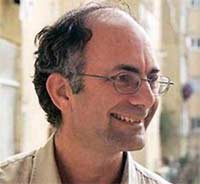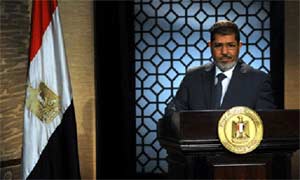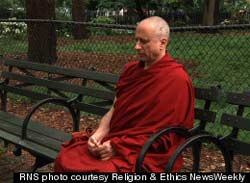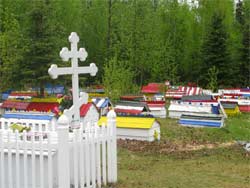Each month TIO shares a few of the more interesting interfaith stories from recent news.
American Muslims Struggle for Religious Freedom
Mosque Construction Continues to Attract Opposition Across U.S.
Judy Keen, USA Today, Chicago June 18, 2012

Mohammed Labadi had a lot at stake when the DeKalb City Council voted May 29 on a request from the Islamic Society of Northern Illinois University to build a two-story mosque.
Labadi, a businessman and Islamic Society board member, said a bigger mosque was needed to replace the small house where local Muslims now worship. He also was hoping for affirmation that his neighbors and city officials have no fear of the Muslim community.
“Don’t look at me just as a Muslim, look at me as an American,” Labadi said. It’s time, he says, “to take the unfortunate stereotypes about Muslims out of the picture.”
The City Council unanimously approved the plan.
In the decade since the Sept. 11, 2001 terrorist attacks, animosity toward Muslims sometimes has taken the form of opposition to construction of mosques and other Islamic facilities. National debate erupted over plans for an Islamic community center that became known as the “Ground Zero mosque” in Lower Manhattan.
In the last five years, there has been “anti-mosque activity” in more than half of U.S. states, according to the American Civil Liberties Union (ACLU), an advocacy group that works to protect individual rights under the laws and constitution of the U.S.
Kenyans Confronting Terrible Violence
Kenyan Muslims, Christians Vow to Prevent Violence
Tom Odula, Huffpost Religion, July 3, 2012

NAIROBI, Kenya — Kenyan clerics across the religious divide vowed Tuesday to not allow sectarian violence to erupt following attacks on churches over the weekend that killed at least 15 people.
The Inter-Religious Council of Kenya said Muslims will form vigilante groups alongside Christians to guard churches in Kenya's North Eastern Province, where the latest attacks occurred.
Buddhist Peace Activists Call for Respect in Thailand
Buddhists Successfully March to Declare to World: Stop Disrespecting Buddha
PRWEB, July 1, 2012

The Knowing Buddha organization marched to tell the world to ‘Stop disrespecting Buddha’ at Chatuchak weekend market and at Khao San Road.
A large group of Buddhists from Bangkok and up country, readily walked holding signs to raise awareness to Buddhists and foreigners of the proper treatment to Buddha, and not to let the world forget that Buddha is a prophet of the world.
Chatuchak weekend market (also called JJ market), which is renowned for the market of Buddha’s images, sculptures and symbols used as paintings and furniture, was the main destination that the organization asked for cooperation in helping raise awareness of this issue.
Myanmar Multi-faith Clergy Opposing Interreligious Violence
Senior Religious Leaders in Myanmar Reject Violence and the Misuse of Religion in Rakhine State
Religions for Peace, June 18, 2012

“Though lofty declarations by national and international organizations may articulate the ideals and set the scene for interfaith relations, much of it gets lost in politics. The real work is usually done at the grassroots level.
I witnessed it firsthand earlier this month when I addressed a gathering of members of more than a dozen liberal churches and synagogues in North Toronto. The group has been meeting regularly for some 25 years. The hundreds of women and men involved have not only forged strong bonds of friendship but also gained a deeper understanding of the others’ beliefs and practices. As their mission statement has it, “we pray our work will help end bias, bigotry and racism.” By all accounts, their joint endeavours have also deepened their own faith.
My talk was about the tension between the quest for truth and the temptations of certainty. Those who claim to know exactly what God wants of them and of everybody else are usually not open to dialogue. If they get involved with exponents of other faiths, it’s normally either to defend their own or convert others to it. By contrast, liberals who engage in interfaith work know that God’s whole truth is beyond human reach. We’re compelled to strive for it yet must settle for fragments. A way to connect at least some of the fragments is to learn from adherents of different faiths in the hope of gaining more insight into our own…
Middle East Peacemakers Seek Canadian Support
Israeli Interfaith Group Promotes Friendship
David Lazarus, Canadian Jewish News, June 26, 2012

MONTREAL — Little would please Yehuda Stolov more than to have Montreal become a source of support for an Israel-based interfaith group that eschews politics and fully embraces common humanity.
That’s how Stolov, a soft-spoken and articulate Jerusalemite, characterized the Interfaith Encounter Association (IEA), which, since he began it 11 years ago, has had only one real item on its agenda: to have Jews, Muslims and other faiths who live side-by-side in Israel and over the Green Line get to know each other as friends, not foes.
“When you live a few metres from another, prejudices can go away quite quickly,” Stolov recently told a small gathering at Chevra Kadisha B’nai Jacob synagogue. “It begins with starting to walk together along the same path.”
Religious leaders Fast in Common Protest
Interfaith Leaders Fast to Protest Solitary Confinement
Chris Lisee, Religion News Service, June 20, 2012

WASHINGTON — An interfaith coalition is urging Congress to end solitary confinement, which they said is a “harmful, costly, and ineffective practice.”
Muslim, Jewish, and Christian faith leaders joined the National Religious Campaign Against Torture to break a 23-hour nationwide fast on Tuesday (June 19) at a press conference following the first-ever congressional hearing on solitary confinement.
“We’re breaking our fast with a commitment that this issue is not over (and) that we’re going to even give more energy to our effort to make sure that no one has to spend time in solitary confinement,” said Richard Killmer, NRCAT’s executive director and a Presbyterian minister.
The earlier hearing before the Senate Subcommittee on the Constitution, Civil Rights and Human Rights called attention to economic, safety, and moral issues solitary confinement raises.
Some researchers estimate more than 80,000 prisoners are held in social isolation.
The 23-hour fast represented the amount of time prisoners are typically required to spend daily in solitary confinement cells, and fasting is one of the sole forms of protest that prisoners have. Killmer said some inmates spend weeks or years confined with no natural light or meaningful contact with others, creating damaging psychological effects. …
Seminarian Warriors of Hope in a Crusade against Ignorance
Jews, Christians and Muslims Study Together at Hartford Seminary
Denise Buffa, The Hartford Courant July 1, 2012

Call them warriors of hope in a crusade against ignorance. They are fighting for tolerance and trust among Jews, Christians and Muslims in a peaceful way.Three Conservative Jews, all rabbinical students at the Jewish Theological Seminary in New York City, have made the pilgrimage to liberal Hartford Seminary, marking the first time the Jewish seminary has allowed its pupils to study at the Christian seminary for credit.
It’s considered precedent-setting.
Along with Jews, Christians and Muslims are also attending the Building Abrahamic Partnerships program this week. The program offers a practical foundation for mutual understanding and cooperation among the three religions. The religious exchange is taking place at Hartford Seminary’s Macdonald Center for the Study of Islam & Christian-Muslim Relations. It’s a place where books like “How To Be A Perfect Stranger” and “The Koran for Idiots” are available.
What makes this different is the formal blessing the Jewish seminary has given the study at the Christian seminary. “The opportunity for rabbinical students from the Jewish Theological Seminary to study at Hartford Seminary in the multi-faith environment of Christian and Muslim colleagues is a godsend,” said Rabbi Burton L. Visotzky, Appleman Professor of Midrash and Interreligious Studies and director of the Milstein Center for Interreligious Dialogue at JTS.
Mohamed Morsi Makes Inclusive Choices in Cairo
Egypt’s New President to Pick a Woman and a Christian as Vice Presidents
Abdel-Rahman Hessein, The Guardian, June 26, 2012

Mohamed Morsi’s first appointments as president-elect of Egypt will be a woman and a Coptic Christian, his spokesman has told the Guardian, as he moves to allay fears of the Muslim Brotherhood.
Sameh el-Essawy said that although the names of the two choices had not been finalised, they would be Morsi’s two vice-presidents.
When the appointments go through, they will constitute the first time in Egypt’s history that either a woman or a Coptic Christian has occupied such an elevated position in the executive branch.
The Muslim Brotherhood is at pains to calm fears of what an Islamist president might mean for Egypt and the region at large. Appointing both a woman and a Coptic Christian is an attempt at a show of unity, and a rule by consensus…
Crafting an Interfaith Monarchy
The Queen's Multi-faith Society
Lord Sack, Chief Rabbi of the Commonwealth, Interfaith News - Worldwide News, June 17, 2012

We do not always appreciate the role the Queen has played in one of the most significant changes in the past 60 years: the transformation of Britain into a multi-ethnic, multi-faith society. No one does interfaith better than the Royal family, and it starts with the Queen herself.
Already in 1952, the first year of her reign, she had become patron of the Council of Christians and Jews, the organisation founded by Archbishop of Canterbury William Temple and Chief Rabbi Joseph Hertz in one of history's darkest nights 10 years earlier. In England, almost uniquely, the Church stood alongside the Jewish community in its fight against anti-Semitism. The royal recognition of the ongoing significance of this effort gave interfaith work a centrality and prestige it would not otherwise have had, and it helped to make tolerance the default option in British life.
Americans in particular find this hard to understand. How, they ask, can you have real tolerance in a country with an established Church? Doesn't it relegate everyone else to the margins of national life? To this the answer is no. In her religious role, the Queen is head of the Church of England, but in her civic role she cares for all her subjects, and no one is better at making everyone she meets feel valued.
That applies not just to individuals but also to all Britain's faith communities. In one of the first public occasions of her Diamond Jubilee, at Lambeth Palace, the Queen met leaders of the nine major faith communities in Britain: Christian, Jewish, Muslim, Hindu, Sikh, Buddhist, Jain, Zoroastrian and Baha'i. Each showed her an object that held special significance for them. She in return praised their contributions to the nation. They helped the sick, the elderly, the lonely and the disadvantaged. More and more, she said, the Church of England was working in active co-operation with those of other faiths to build a better society. Faith, not just Christian faith, reminds us of "the responsibilities we have beyond ourselves." It was gently, deftly done…
Obama’s Stays Interfaith Friendly
Eboo Patel on Muslim Identity In 2012
Odyssey Networks, June 18, 2012

Eboo Patel, founder and director of the Interfaith Youth Core, discusses the importance of building bridges with the Muslim world. Just as he finds resonance between his own American and Muslim identities, Patel says, “the best of America involves the contributions of people from all different backgrounds.”
First Westerner Invited to Lead Major Buddhist Monastery in India
Dalai Lama Taps American to be Abbot of Tibetan Buddhist Monastery
Kim Lawton, Huffpost Religion, June 26, 2012

NEW YORK (RNS) The Dalai Lama has given Nicholas Vreeland, director of The Tibet Center in New York, a daunting new assignment. On July 6, Vreeland will be enthroned as the new abbot of Rato Monastery in southern India, one of the most important monasteries in Tibetan Buddhism. He will be the first Westerner to hold such a position.
In making the appointment, the Dalai Lama told Vreeland, “Your special duty (is) to bridge Tibetan tradition and (the) Western world.”
“His Holiness wishes to bring Western ideas into the Tibetan Buddhist monastic system, and that comes from his recognition that it is essential ... that there be new air brought into these institutions,” Vreeland told the PBS program “Religion & Ethics NewsWeekly.”
For many observers, the choice of an American for the role may be a surprising one, and perhaps even more surprising given the background of this particular American…
Native and Orthodox Rites Overlap in Alaska Cemetery
A Plot in the Eklutna Cemetery Features a Traditional Three-barred Russian Orthodox Cross
Corey Flintoff, NPR July 7, 2012

The first thing you see at Alaska’s Eklutna Cemetery is a tidy white church, with copper-colored onion domes that are topped by the three-barred Russian Orthodox cross.
The church is a reminder of the days when Alaska was claimed by imperial Russia. But it hardly prepares you for the unique combination of Native American and Russian Orthodox influences in the graveyard beyond.
Eklutna is a Dena’ina Native village, just off the highway about 25 miles north of Anchorage.
According to Leggett, an anthropologist and curator at the Anchorage Museum, the Dena’ina are an Athabascan people, who have occupied Alaska’s south-central Cook Inlet area for more than 1,000 years. Athabascans are part of a vast Native American language group that stretches into Canada and Mexico. They are linguistically related to Apaches and Navajos.
Before they encountered the Russian fur traders and priests who began coming to the coast in the early 1700s, the Dena’ina cremated their dead.
Leggett says the ashes were usually put into a birch-bark basket and placed in a tree or by a riverbank, in the belief that would free the spirits to make their final journey to what the Dena’ina call “the High Country… But when we converted to Orthodoxy, the church forbid us from cremating human remains,” he says. “And as a result, we constructed these spirit houses, where the spirits would have a place to go — and not bother the living until they made that final journey.”…
2010 U.S. Religious Census Comes with Surprises
Most and Least Interfaith Cities In America
Jahnabi Barooah, Huffpost Religion, June 25, 2012

A study measuring religious bodies in the United States called the, “2010 U.S. Religious Census: Religious Congregations & Membership Study (RCMS)“ was recently released by the Association of Statisticians of American Religious Bodies (ASARB). The most comprehensive study of its kind, it provides detailed county by county information on congregations, members, adherents and attendance for 236 different faiths groups. (The survey differentiates between specific denominations within the same tradition.)
Of metropolitan areas with population greater than a million, the researchers found the greater area of Phoenix, AZ to be the most religiously diverse, and the greater area of Birmingham, AL to be the least religiously diverse…
